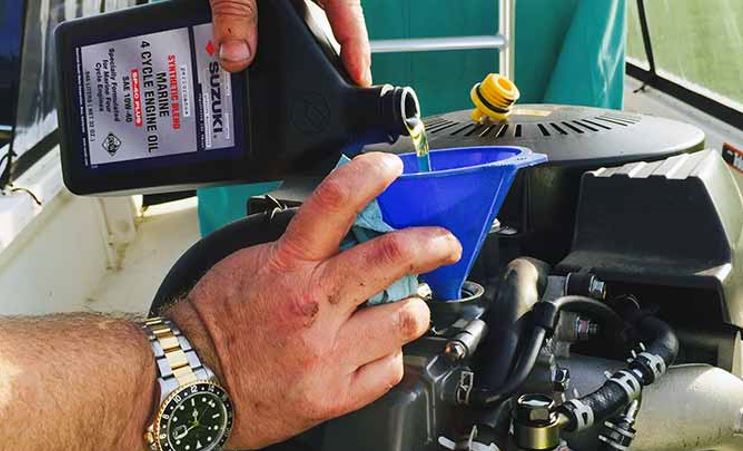Are Boats a Good Investment?
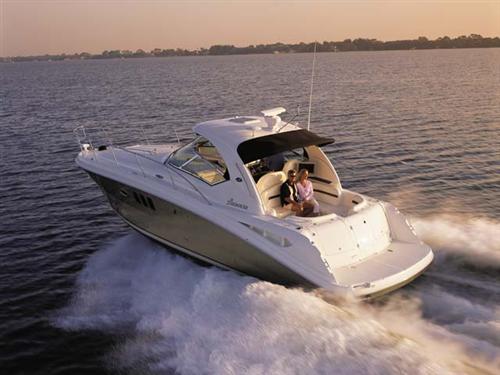
B.O.A.T.: Bust out another thousand! Yes, we have all heard the cliches. They are never-ending. Boats are just a floating hole in the water! Blah, blah, blah, blah, blah! What is the truth?
Are Boats A Good Investment or A Bad Investment? A boat is like any financial investment. If you know what you are doing, then a boat is a great investment. If you don’t know what you are doing, then it can be a very bad investment! There is an element of risk in any investment, understanding that risk is what you need to know.
Here are all of the factors, risks, and costs that you should think about when looking at a boat as an investment, or going to purchase a boat for pleasure.
What is the Reason You Want a Boat?
Getting into the world of boating is like picking up another habit. Some people are hooked from their first trip to the lake.
Others will never want to step foot on a boat again for the rest of their lives. Your first experience when getting into the marine industry is very lasting and important.
Having the right boat, the right experience, the memorable times, and the great stories will be part of the deciding factors whether you are in or out!
This brings us to the question of what your reason is behind wanting a boat and looking at a boat for an investment?
For some of you, you already have this answered and don’t need to think about it. You can move on a little further down the article for what you came for. For a lot of you, on the other hand, this is something that you need to consider.
If you jump into buying a boat without looking at all of the sides and reasons why; then you can destroy your enjoyment of the water that so many millions of people experience all the time.
If you jump into a huge project boat that just sits in the yard or driveway because it is never fixed; then you will hate boating.
Same goes if you buy something that is so nice that every time something goes wrong; you end up hating using the boat. Neither of these situations is good for anyone, and will just lead to a bad experience for everyone that is involved.
The reason most people want a boat is so that they can enjoy time with their family and friends. Not end up in a fight every time they take the boat out!
This is going to be a list of the most important things to consider and look at for buying a boat and looking at a boat as a good or bad investment.
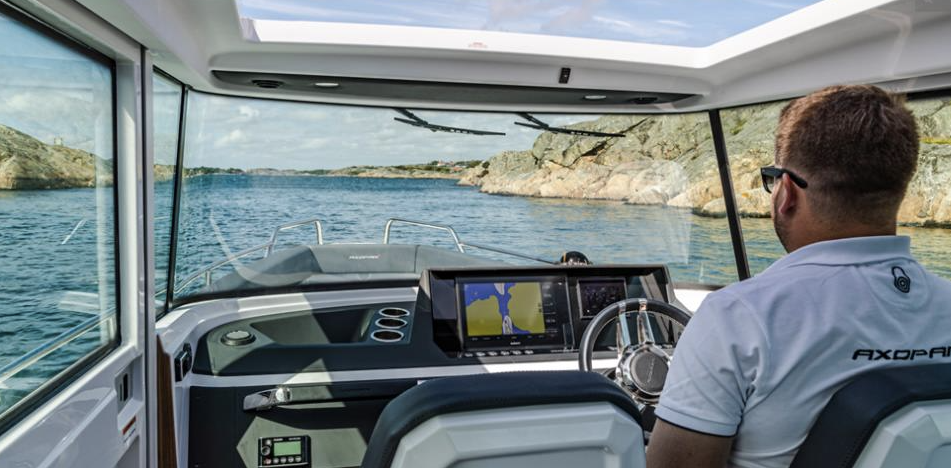
Owning a Boat for the First Time?
First things first, is this your first boat? What kind of boating experience do you have? Do you know how to drive a boat?
How about trailering the boat? You know backing it into the ramp, safely unloading it and then reloading it at the end of the day.
What about parking the boat? Pulling up to a restaurant and pulling into a slip. Cleaning the boat? Servicing the boat? Maintaining the boat?
Winterizing or summerizing the boat? Is this a project boat or a ready to go boat?
I hope you are getting the picture. There are a lot of things to know when it comes to owning a boat.
I’m not saying all of this to discourage you, not by any means. This is just to let reality set in and get you thinking about what you are getting yourself into. That is why you are here right?
To prepare yourself and get familiar with what you are going to deal with.
Great! back to our list!
A lot of these things we have covered in an article we wrote about How to prevent Boat Accidents: Written by an Actual Boater!
That article will help you cover the basics of boating and have a good idea of what steps and measures to take to safely and enjoyably get into boating.
For more information about any of these topics, the 3 articles we have linked here will be a great resource packed full of real local information from the water.
Without giving you a bunch of fluff and trying to sell you something like most magazines and websites are doing.
I make a living helping people maintain their boats to keep them on the water. So we aren’t trying to sell you anything in these articles. We are trying to help you have a great time and love boating as much as we do!
How a Boat can be a Good Investment
Now, this is where we get into the meaty stuff! What makes a boat a good investment? This is a question that a lot of people search for hours, days, weeks, months, and even years trying to figure out how to make a boat a good investment.
It’s pretty simple though. It isn’t so much as how to make a boat a good investment, as much as it is a mindset of what makes anything a good investment.
A good investment has a single trait, no matter what the investment is, that connects all investments together. In order to group them into either good or bad investments.
That trait is, the buy! That’s it, the buy! No matter what it is, a car, truck, motorcycle, shoes, books, clothes, houses, boats, stocks, funds, food, travel, and anything and everything else that you invest your money into.
What makes a good investment is whether it is a good or bad buy. A deal is a deal no matter what.
House flippers make all their money at the buy. If you buy it too high, you won’t make any money. If you buy it low, then you make a killing!
Anything that has a motor or wheels loses 20% of its value in the first year! According to CARFAX, a new car loses 40% of its value in the first 5 years of its life!
So if you are looking to make a good investment in your vehicle, you look for a 3 or 4-year-old car with really low miles! The same goes for the boats. With a little bit of a twist because of the difference and application of the item.
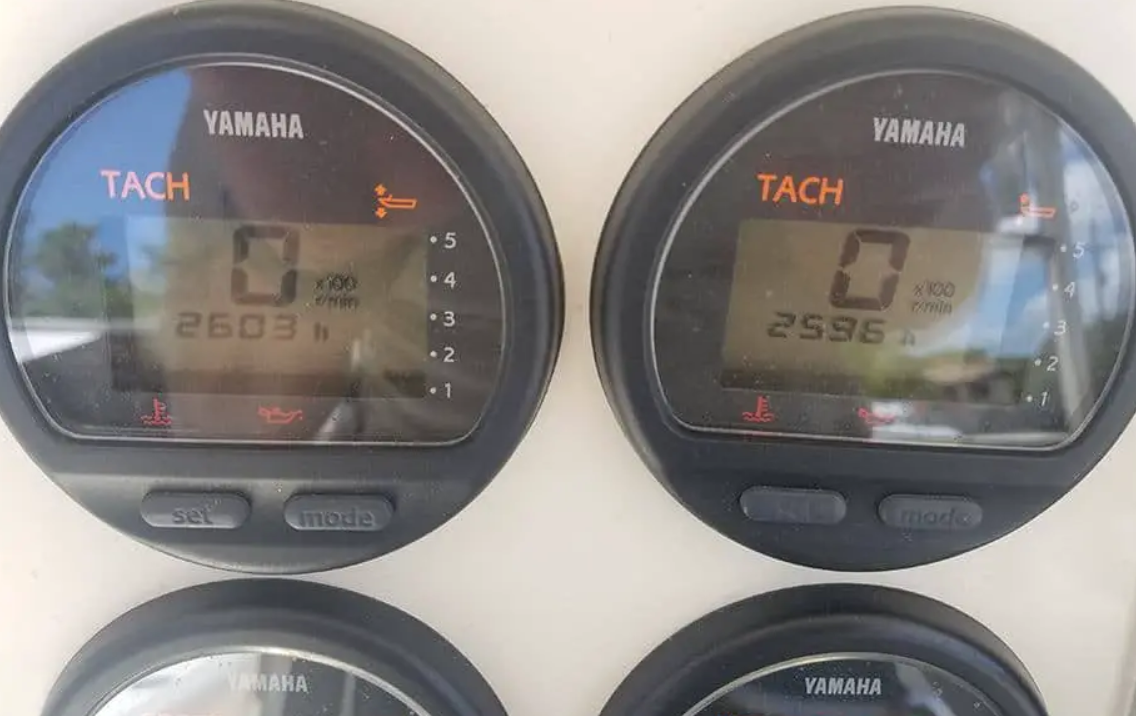
Understanding Hours and Age Vs. Mileage
A boat loses its value at a much higher rate than a car. This is why a boat’s engine records the hours of operation instead of the mileage like a car does. The main thing to understand about that is that a boat engine is built to operate at high RPMs or rotations per minute.
They can run from 5,000 to 7,000 RPMs WOT or wide open throttle. This means the wear and tear on the engine is a lot higher than your trucks. Where you can go down the highway at 70 MPH only turning 2000 RPMs.
Therefore, the longevity of a boat engine is dealt with in hours. So the higher the hours, the more tired and worn the engine will be.
Another factor about a boat motor is the age. Freshwater engines are not affected by this nearly as much as saltwater engines are.
(Read this article here to find out about the effects and difference between freshwater and saltwater boating.)
There was a time when 2-stroke outboard engines ruled the market. You could get a couple thousand hours out of the engine, but then it would need to be rebuilt.
Whereas today with the advancements of 4-strokes; we see engines getting up to into the 6000-hour ranges!
This is not the norm though. Engines will hold value based on that hour mark. At the same time, we need to look at the age of the engine. Let’s say an engine has a life expectancy of 30 years if it is really taken care of. We are concerned about the life expectancy when we are talking about investments.
So if you are looking at a 20-year-old engine. You are on the last leg of that engines expected life; which equals a poor investment.
How a Boat can be a Bad Investment
If an investment makes all of its ROI (return on investment) when we buy it; then a boat can be a bad investment if it is overpaid for. This means overpaying for a super clean boat, that has a 25-year-old engine on it with 3000 hours!
Yes, the boat may be super clean, but if you are paying for the detail job that was done; then we aren’t looking at the actual value of the boat. You will be looking at taking what you paid for the boat; then adding the cost of a repower!
Which is when we have to take the engine off of the boat and install a new engine onto it. This can get expensive quick, depending on the size of the boat and the number of engines that it has on it. Also, what does the rigging look like? If the engine has to be replaced, can you use all of the riggings and stick with the same engine manufacturer?
There are a lot of things that need to be looked at in order to determine whether a boat is a good or bad investment. The buy is where we decide whether or not the boat is either of these.
Here is another article that tells you what are the top things you want to look at on a boat or project boat before buying it.
Covering all of these bases will keep you from spending your money on a boat that is way overpriced.
The last rule of thumb that I would suggest thinking about is; in a pinch can you just turn around and sell the boat for what you paid for it? If a boat is sitting for sale for a long time and no one is buying it. Then it is either a lot of work or it is way overpriced.
If you are the one that buys it, you won’t be able to get your money back out of it. Unless you sit on it for a long time and wait for someone that doesn’t know.
If it is a big project boat and you can’t do the work to it; then this is not going to be a good investment for you.
When you go to resell it, those that buy and restore boats, pick them up for next to nothing, and they make all their money by doing the work. So, make sure you are not taking on a huge project that you cannot finish!
What Kinds of Costs Come with Owning a Boat?
Next, comes the consideration of what does it actually cost to own the boat? Are you trailering it and keeping it at your house? Do you need to pay for dockage or a storage facility? Do you have a sufficient vehicle that can pull the boat if you are trailering it?
There are a lot of variables when it comes to deciding what it actually costs to own a boat. Every single person is going to have a different situation. These are most of the things that you are going to want to consider for budgeting out what it is going to cost you to own it.
If you are looking at a small boat that is on a trailer that your truck can tow easily and you have a great spot next to the garage to keep it safe. Then your cost there is going to be pretty low.
If you are paying for storage, depending on the size of the boat can reach up into the thousands per year. Average being somewhere around $4,000 a year!
The next cost is maintenance. Maintenance on a boat is everything. This is the life of the engine and the longevity of your investment. The biggest factor here is going to be, can you perform the maintenance yourself, or do you need to pay someone to do this for you? If you have to pay someone to do this, then consider that it will typically cost about $1,000 per year per service. That is per engine too.
Now if you are putting a lot of time and hours on the engine, this cost will go up, the more services you need to perform in a year.
We make a ton of how to outboard service videos on our YouTube Channel: Born Again Boating!
Though this is super helpful in seeing what has to be performed; you still need to have all of the tools in order to perform the tasks, which aren’t cheap.
If you can perform the maintenance yourself, then this will cut that service cost in half! This is also a good time to give a plug about hiring your neighbor to perform a service for you.
There is a huge difference between a real mechanic and the guy that can talk and lead you to believe he can fix your boat.
(Read what we wrote about this topic here: The Real Difference Between A Mechanic & A Technician!)
Having an inexperienced person work on your boat could turn into a costly job.
Costing you more than it would have in the beginning if the person destroys expensive parts trying to take things apart that they don’t know what they are taking apart!
The last cost that you could have in owning a boat, is the insurance. Boat insurance can range so much depending on the value of the boat. For those estimates, you should get in touch with Boat US, in order to get an accurate price.
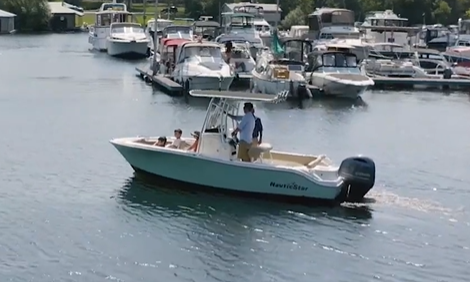
Understanding Depreciation
The depreciation aspect of a boat was touched on a little bit. However, I want to take it just a little further so that you really understand how much it drops.
Just like cars, boats can lose 20% of their value in the first year. Then tack on the hours on the engines and the value can sink rapidly. Just knowing that they can depreciate quickly is good, but I also want to put into perspective the financing.
Whether a boat is a good investment or a bad investment also comes down to how the boat was purchased.
A boat loan is a lot different than a car loan. You can acquire a boat loan up to even 15 years! Now that is a long time!
Given the depreciation factor of a boat; think about how much a $100,000 boat is going to be worth after 15 years. We are talking like $30-40,000! Depending on the condition. This can get as low as $15-20,000 if it wasn’t taken care of at all.
What kind of investment is that? It doesn’t take a CPA or a CFP to look at those numbers and know that was a terrible investment! Not to mention the interest rate for a boat is much higher than your average car. So if you calculate those interest payments over that time period, you will have probably paid double the loan price!
Are Boats a Money Pit or A Waste Of Money?
This is what makes people think about boats as a money pit! Because they have overpaid, overextended, borrowed too much, and went upside down the day they signed on the dotted line!
One of the best ways to make a boat a good investment is to pay for it with cash. That will save you tons of money and keep you from forking over all of that money in interest payments!
Now, this is really aimed at those that have the money and with ease make the payments on the loans changing in boats every couple of years.
Those that are not looking at the boat as an investment, but more of an expensive toy that can be written off come tax season. That is different from what we are discussing here today. For those that are in that position, more power too you, have fun on the water and keep on boating!
For the rest of us though, that are looking at this as an investment, a boat can become a money pit with certain attributes. The biggest thing that makes a boat a money pit Is the lack of use.
If you never have time to use the boat, and it is just going to be sitting in the sun baking all day every day; then it is going to become a money pit that costs you thousands of dollars every time you go to use it. The sun will eat up the cushions, the paint will fade, the aluminum will pit, and the engine will begin to have all kinds of problems from sitting and lack of use.
It may seem hard to understand, but a boat is made for the water. Water has some serious effects on metal, paints, wood, and especially engines. So as it sits, these things start to pop up. It won’t take long to be another person that has learned that the worst thing for a boat, is for it to just sit!
Is Buying a New Boat a Good Idea?
When looking at a vehicle as an investment, again we talk about the depreciation factors of it. Doesn’t matter what it is, car or boat. It is going to lose tons of value in the first couple of years. In my opinion, I can only see buying a new boat and being able to make it a good investment under a couple of scenarios. That is being able to make an ROI on that investment. Meaning that you need to buy the boat with cash or make the payment cashflow.
An example of this would be that you buy a new boat and then you hire a local boat rental establishment to work out a deal to add the boat to their fleet. Meaning that they are going to rent your boat to people that have no clue how to operate it. They will be running it as hard as it can run and racking up major hours in short periods of time.
The advantage of this is that how much you can charge to rent a boat, versus the price of the boat and the cost that it incurs during service intervals, can become profitable, making it cash flow and a great ROI. You want to be careful though and work the numbers extensively. They have to work out to where within 3 years (because that is all the boat is going to last for, before needing repowered or serious repairs made to it); it will pay itself off and put some money back into your pocket.
Another scenario would be to charter the boat out. Remember though, a lot of charter captains can be super hard on the equipment. So, you want to have a good relationship with the captain and trust the way they operate the boat. Chartering the boat out on fishing trips and other adventures that people are willing to pay to experience can reap good profit margins.
However, be careful to work the numbers so that the boat is paying itself off and cash flowing all of the expenses that are being incurred.
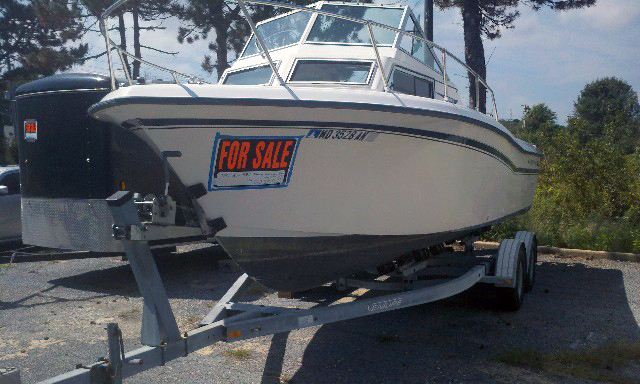
Is Buying a Used Boat a Good Idea?
This brings us to the used boat. Which for most, is the best way to ensure a good investment on a boat. You can get a deal on the depreciation scale from someone that didn’t do their homework (by reading this article you just read. Great Job!). So you can win there, then paying cash for the boat, another slam dunk, because everybody is willing to take a little off the top to get rid of the boat and get the cash in their bank account!
Then, using and enjoying the boat for a couple of years, working out your expenses and reselling the boat, getting your money back out of the boat! It is the win-win option in my opinion when looking at a boat as a good investment.
Do You Really Want to Own a Boat?
Remember though, it is still a boat. So, things happen all of the time, and boats are always breaking. Be prepared to handle this with joy and just taking care of the issue, and moving onto the next thing.
Boats are for enjoyment and to have fun on the water. If all of the to-do that comes with boat ownership isn’t for you. Or you are completely new to this industry. Then maybe renting a boat for a little while would be best for you. Another thought is that you should buy just an old beater boat that has a good engine, but is not going to break the bank.
Then you will incur some costs, but at the same time you will learn a ton about the boat, what breaks, what doesn’t, what you need to be concerned about, what you want, and what you don’t want. Just doing some real academic experimentation!
We hope this was a helpful article to you and we’d like to invite you to come and check us out on our YouTube Channel: Born Again Boating!
